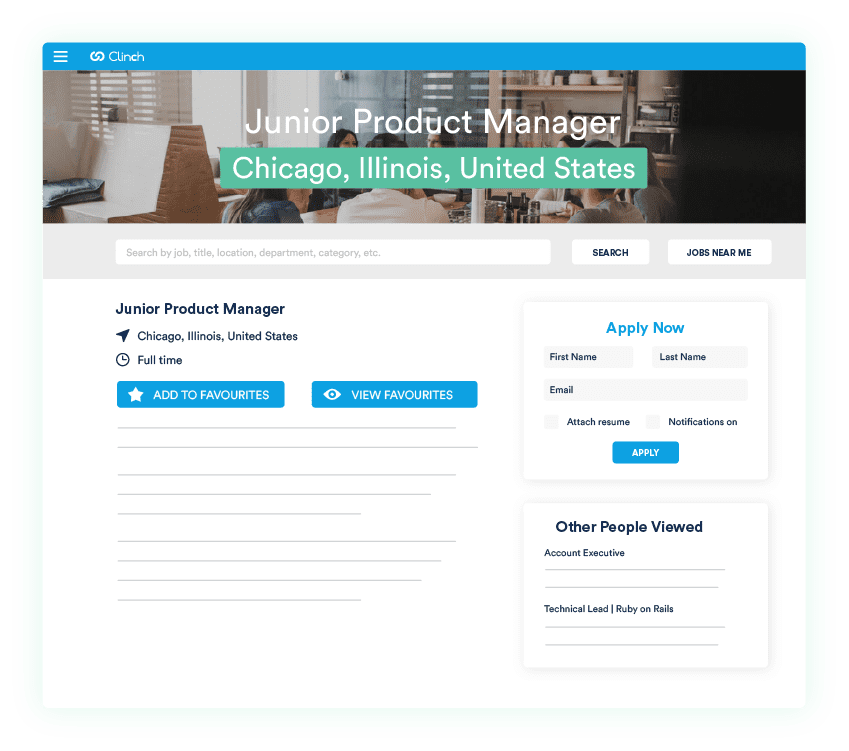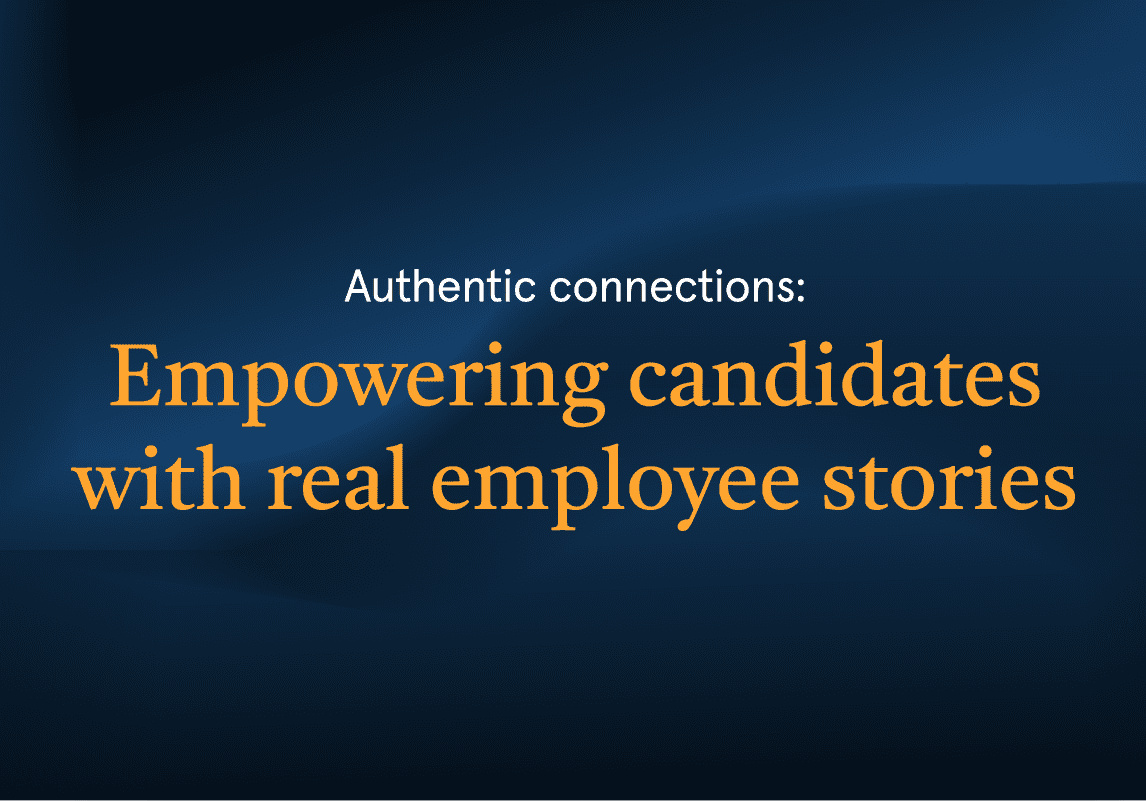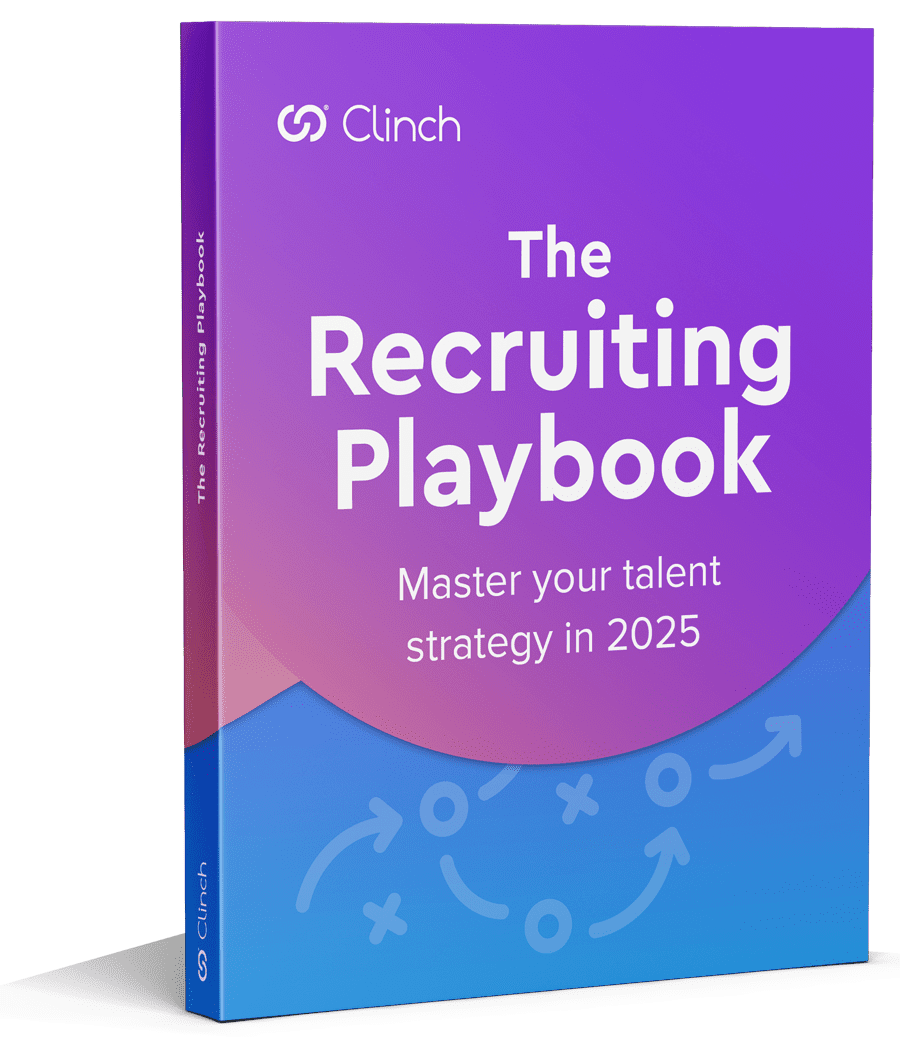Technology is firmly positioned as a key player in the new world of work. As recruiter workloads rise, the need to “do more with less” has become standard practice in many organizations globally. To rise to the challenge, savvy teams are turning to technology to transform their approach. Whether trying to increase diversity, compete for high-quality candidates, build stronger talent pipelines, or reduce time-to-hire, the right HR tech stack unlocks a new level of productivity —and the opportunity to reduce recruiting costs and drive ROI.
How can you use HR tech to increase productivity, drive ROI from your recruitment budget, and secure the best talent?
We’ll cover:
- What goes in to a good HR tech stack
- Streamline hiring with recruitment marketing
- How to use technology to improve candidate experience
- The importance of high-quality content on your career site
- How to highlight employee stories through employee advocacy
What goes into a good HR tech stack?
A good HR tech stack is one that works in alignment with organizational goals. It should be designed to support your HR team and improve the overall employee and candidate experiences. When looking to streamline your recruitment process, two core tools to consider are an applicant tracking system (ATS) and a recruitment marketing platform. These tools each cover a different aspect of the recruitment process: the ATS helps you sort and hire applicants, while a recruitment marketing platform focuses on the tools needed to attract jobseekers and convince them to hit ‘apply’.

While these are the core tools for a strong recruitment strategy, there are many more —the HR tech industry has exploded. Now, there are tools to cover every aspect of recruitment —from employee screening, to video interviewing, to onboarding, and employee engagement. Depending on your budget, needs, and goals you can craft a tech stack to suit your exact requirements. It’s important to choose tools that are easy to use and will help you craft a great experience for candidates —and that provide you with actionable insights and data to help make decisions and prove ROI.
Related reading: Head to the marketplace to see how Clinch fits with your existing tech stack to take your recruitment to the next level.
Streamline hiring with recruitment marketing
As the talent market got more challenging and companies had to increasingly compete for talent, recruitment marketing became an essential part of any talent strategy. The Clinch Recruitment Marketing suite contains a range of tools all designed to streamline your hiring, build your employer brand, and help you source the best candidates, faster. Some brands using recruitment marketing tools have been able to cut their hiring costs by up to 70%.
Recruitment marketing allows you to attract, engage, nurture and convince great jobseekers to apply for a role or express interest in your organization. It’s about using all the tools at your disposal: careers sites, social media, employee stories, job ads, employer branding, SEO, and automation to deliver a personalized experience that paints a compelling picture of life at your company. Instead of waiting for applicants to come to them, recruitment marketing flips the narrative —it’s not about fishing for talent, it’s now about proactive recruiting. This approach reduces time to hire drastically, cutting costs, and giving candidates a great experience.
Innovative organizations are using recruitment marketing tools to build out alternative talent pools —like alumni employees. Taking this approach saved travel brand Flight Centre up to 35K per hire, as they were able to fast-track time to competency by choosing from a pool of candidates with prior experience.
Recruitment marketing software can also help you automate repetitive tasks, create workflows, and manage candidate communications — allowing you to spend more time doing what matters most. And by using data and analytics, you can track the success of your campaigns to make data-driven decisions about your recruitment efforts. That way, you can optimize your recruiting spend and get the most out of your budget.
Use technology to improve candidate experience
Why is candidate experience so important? In the talent world, candidate “ghosting”, quick-quitting, and saying ‘no’ to offers are all on the rise. While traditionally, the recruitment process was primarily used for companies to evaluate potential employees, now as job openings exceed applications —it is well and truly a two-way street. Candidates are evaluating every aspect of a hiring journey, and organizations that aren’t delivering are missing out on top talent.
While a positive talent journey benefits your employer brand, improves candidate quality, and reduces churn, the financial impact of a poor hiring journey is astronomical. Long, drawn out recruitment processes costs time, money, and candidates. Every candidate lost means more resources spent poured into finding new applicants. Once you’ve found your gold medalist, the risk doesn’t end there —20% of turnover occurs in the first 45 days of work, and 45% within the first year. At the crux: candidates saying ‘no’, “quick-quitting”, and employee churn are projected to cost organizations around $30.5 billion per year. What can companies do to avoid these costs? Prioritize a transparent, candidate-centric hiring experience.
HR technology provides companies with a huge opportunity to personalize the hiring process and make it seamless from interest, to application to onboarding and beyond. Providing a human touch goes a long way in making candidates feel valued, but is often hard to do at scale. With recruitment marketing, busy teams can scale their personalization efforts by building custom candidate nurture flows to share relevant content, use targeted calls-to-action, and connect jobseekers with real employees. By building personal connections, you’ll see increased applications and higher quality hires. In fact, companies that have invested in optimizing the applicant experience report that the quality of their hires improved by more than 70%.

Revamp your career site with high-quality content
Your career site is often the first point of contact for candidates, so it’s important to make a good impression. By investing in a visually appealing and user-friendly career site, you improve your chances of converting visitors into applicants. An engaging career site is a highly effective sourcing channel –2X more effective than job boards.
Often overcrowded with corporate jargon and static imagery, many career sites miss the mark. Today’s jobseeker is discerning —they want access to a broad range of information, and generic content won’t cut it. They want to see what it’s really like to work at your organization, DEI initiatives, benefits, and values. One of the most effective ways to communicate these ideas is through the voices of your employees. With rising skepticism amongst jobseekers, potential applicants are more interested in hearing from peers, than from a company CEO.
To create a career site that focuses on providing a world-class candidate experience, consider including the content that jobseekers want to see:
- Custom landing pages
- Real employee stories & testimonials
- DE&I statement
- Employee benefits schemes
- Career progression opportunities
- Targeted Calls to Action (CTAs)
- Work-life balance initiatives
- Mission & Values
- Day-in-the-life details
With an optimized career site and high-value content, you’ll turn your site into a well-oiled application generating machine. Bespoke career sites convert visitors to applicants at a rate of up to 40%. Driving traffic to this low-cost, high-return sourcing channel will help you to reduce agency and job board spend without sacrificing applicant quality.
Use employee stories to convince jobseekers to apply
Employee advocacy is all about harnessing the power of your employees to promote your company, your values, and your people. Using employee generated content tools in conjunction with employee advocacy can take your employer branding and candidate experience to new heights —while reducing recruiter workload.
We know jobseekers trust peer reviews more than corporate ‘spin’. Harnessing employee stories to show candidates a realistic, genuine insight into your company breaks down barriers and builds trust with potential applicants. Your career site is the ideal place to start integrating this content.
Clinch employee connections includes livechat Q&As, video content, and discussion forums which connect candidates with real employees to answer their questions. This authentic candidate-driven content is 200% more effective at engaging candidates —while also reducing the time recruiters spend answering questions by up to 40%.
Coca-Cola uses employee generated content as a key pillar of their talent strategy. The platform facilitates an open discussion between potential candidates and your chosen employee ambassadors — providing targeted answers to questions and building genuine relationships. It gives jobseekers a direct window into life at your organization, and they can see themselves represented within your workforce.
Employee advocacy also extends to social media. Millennials and Gen Z in particular use social media as a key research tool —and they’ll use it to look into your employer brand. You can share employee generated content from your career site, or encourage your team members to share company posts and updates as a low-cost, high reward channel to generate interest.
With jobseekers increasingly less trusting of corporations, they need an extra push to hit “apply”. Connecting your employees with potential applicants is a win-win: it keeps top performers engaged, gives jobseekers the opportunity to build trust, and enables recruiters to spend less time answering frequently asked questions. This means more applications, a streamlined hiring process and better return on your recruiting budget.
Final thoughts
With high competition for talent and increasing economic uncertainty, teams are stretched. It’s crucial to work smart. Without the right content, the right processes and the right tech to back it up, hiring teams risk falling behind the competition —and funneling more money into job boards. Fortunately there’s a better way. By incorporating recruitment marketing tools into your HR tech stack you’ll be able to provide an engaging, interactive, and personalized candidate experience, at scale, with less manual effort. Reduce your time to hire, reduce post-hire turnover, and spend less time sourcing, more time hiring.





